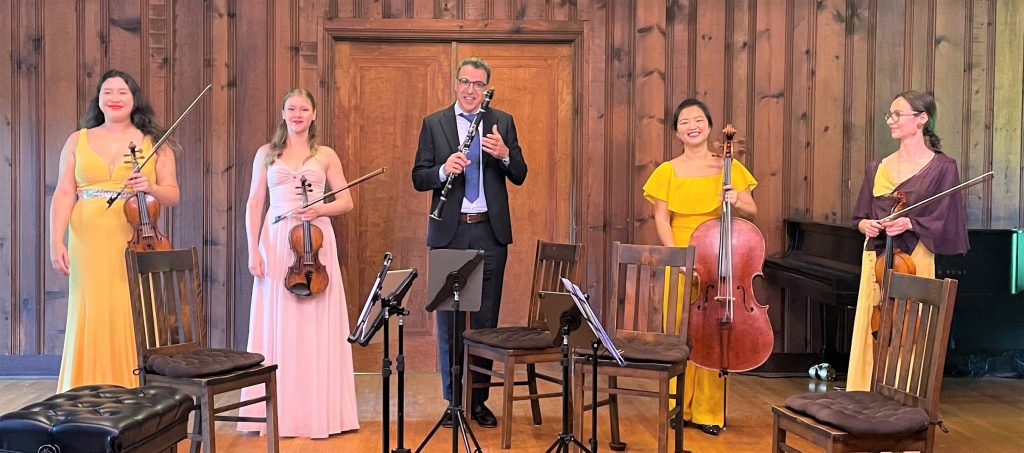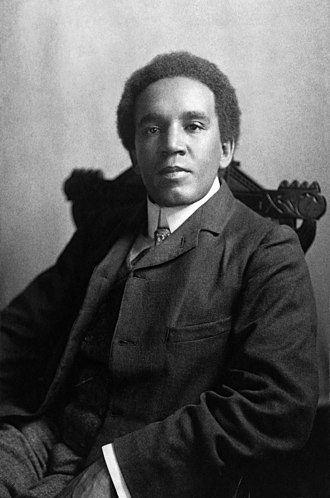
by Kevin T McEneaney
Sunday’s afternoon event at Music Mountain was preceded by a talk by Darlene Kascak, a member of the local Schaghticoke Tribal Nation. She admitted that there were territorial conflicts with immigrants from England yet noted that at least 80% of natives died from viral and bacterial infections—unlike Europeans who had evolved genetic protection, natives possessed no genetic protection to a variety of fatal diseases, some of which were carried by animals imported from England and France.
The Ulysses Quartet, composed of four female string players (from Manhattan) who have won major international awards since 2015, apparently have that Roman version moniker of the Greek Odysseus (an outcast whose name was odious to his enemies) due to their ambition to wander the world like Ulysses in search of home, which they now consider this dizzy globe we inhabit. While they have enjoyed many accolades from music reviewers, the one that appears most apt to me was from The Buffalo News reviewer who acclaimed their “blend of exuberance and polished artistry.”

I will address the second-played program first, String Quartet in C Major, Op.59, #3 (1806) by Ludwig van Beethoven, this being a perennial favorite at Music Mountain, being the forty-second performance of this work. This was the third of three quartets commissioned by Russian Count Rasumovsky and dedicated to him, the first two employing themes from a two-volume collection of Russian folk music. All three are quite different from each other. The Andante of Op. 59 #3 may employ one such theme, yet the work wanders into a personal world of exciting new discoveries. There is a startling use of pizzicato as if projecting personal asides regarding the composer’s confession of deafness accompanied by heightened rhythmic drive and wider harmonic patterns as well as the division of melodic melodies into ever smaller units that are flowingly integrated. At the time, many found this work difficult to follow, yet today it is renowned as a substantively influential masterpiece, however the difficulty of performing it precisely in the manner that Beethoven intended remains a significant challenge for any quartet. I am pleased to report that at intermission I overheard more than one person acclaim this high-spirited performance of all four musicians on stage. Christina Bouey on first violin was scorchingly impressive; Grace Ho on cello provided such resonate bass that my heart thumped; Georgina Isabel Rossi on viola offered marvelously subtle melody; second violinist Rhiannon Banerdt supplied smoothly silky support! This was a triumph to cherish and recall!

Samuel Coleridge-Taylor (1875-1912) was born in London of a mixed-race musical family; he became a noted violinist and composer, performing in three tours of the US; some of his compositions were influenced by African American music and indigenous “Indian” music, notably jazz and the blues, which happens to be the case in Clarinet Quintet in F Sharp Minor, Op. 10 (1895). After having been forgotten for many years, there is a current revival of his work, both in the US and England. I offer my humble interpretation, based upon autobiographical musings: the charming opening Allegro energico playfully depicts the myriad joys of his childhood; here the seemingly endless energy of youth was brightly fore-fronted by Christina. The Larghetto affectuoso depicts the depicts the various characters of his family in a loving light as in a family portrait. The short Scherzo Allegro leggiero (which would usually be a joking movement) limned the delightful experience of attending the Royal College of Music at the age of fifteen where he was a smashing success and met a woman who was six years older than he and happily married her despite objections from his parents—here that delineated musical experience of success and marriage was apparently pleasantly intoxicating—this movement offers an illustration of what Italians call sprezzatura. (I was stunned by this movement: the graceful, seemingly effortless way the Quintet played it, especially the generous, tender warmth of Oskar Espina Ruiz’s blooming clarinet.) And the fourth movement? The Finale, Allegro agitato is a celebration of the first of his three tours in the US where he discovered jazz and blues.
(In his first term, President Teddy Roosevelt invited Taylor to the White House in 1904, this being a rare time that a person of mixed race was invited to the White House. Roosevelt had appointed Booker T. Washington as his official-salaried African American advisor; the invitation was likely prodded by Washington who had heard Taylor play his violin. In 1901 Booker was the first African American to be officially invited to dine at the White House when Roosevelt offered him the job.)
The exciting fourth movement includes some heightened jazz riffs on clarinet, then descends to poignant blues lament (which Oskar on clarinet played with deep emotion) before an optimistic high-note reversal (with Christina in overdrive and Georgina supplying thrilling robust support on cello), amicably prophesying a better future for African Americans through their love of music. Unfortunately, Taylor died of pneumonia at the age of 37. This clarinet quintet should be established as holding significant status in traditional classical repertoire.

I will now address the first work played on the program, the first performance of Suite for Clarinet Quintet by Seth Grosshandler at Music Mountain, premiered in Ithaca last year (commissioned by the Cayuga Chamber Orchestra). One might observe that the repertoire of clarinet quintet’s remains small, although Mozart enthusiastically paved the way for this new (at the time) instrument. For this performance, Seth thanked Oskar for suggesting expansion and advising on the concluding Frolic movement. I found this work focused upon dance modalities delightful in way that Felix Mendelssohn’s and Samuel Coleridge-Taylor’s music is—lively, optimistic, harmonically activating a wide spectrum, and warmly engaging, as the full register of the clarinet was featured in Oksar’s sensitive, wide-ranging rendition.